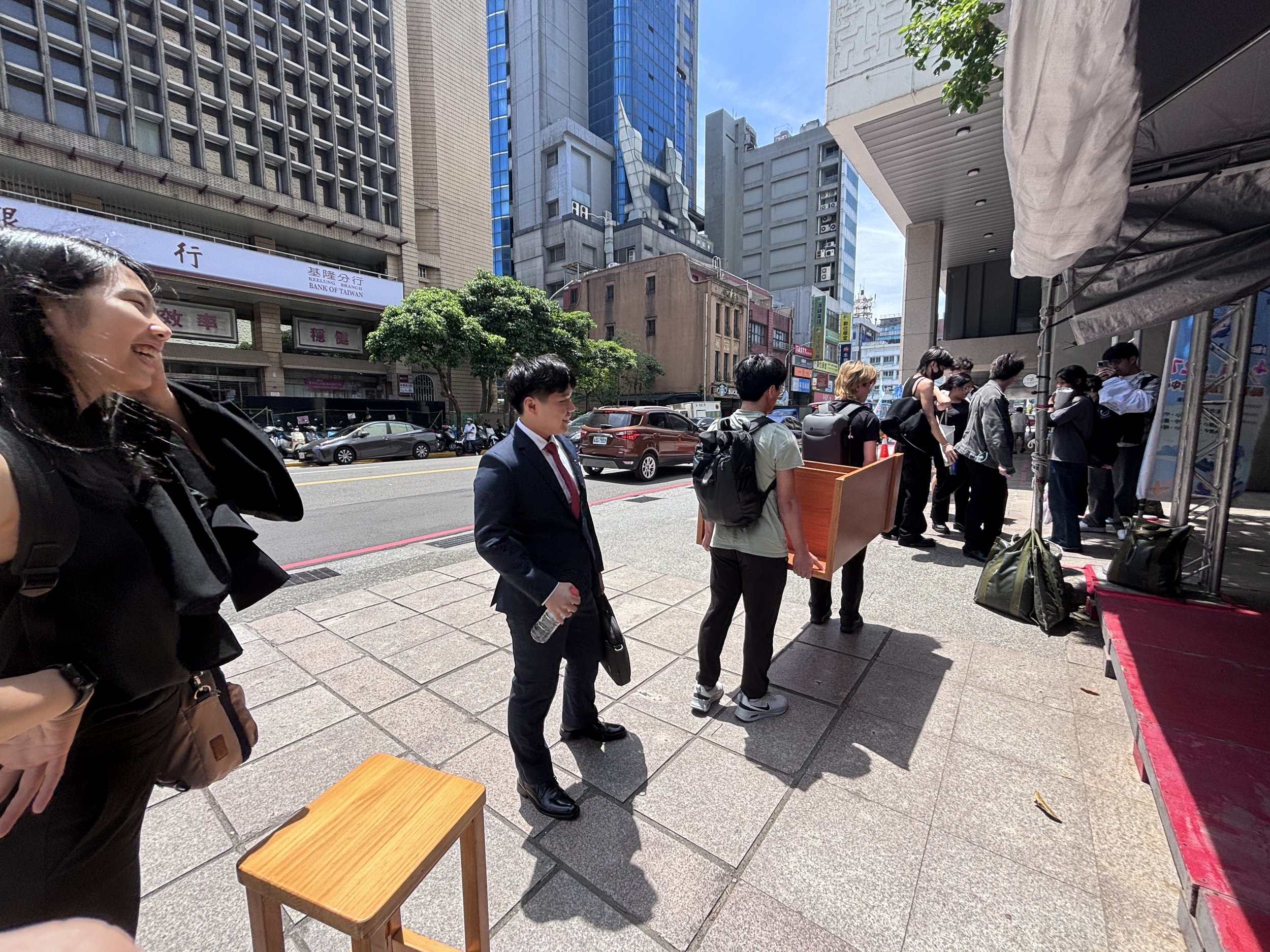Takeaways From Taiwan’s National Student Competition of Creative Drama Art
This past week, our school attended its first National Student Competition of Creative Drama Art 【全國學生創意戲劇比賽】. We were the only school to have two teams, elementary and high school, reach the national level.
We originally had three teams at the local level: elementary, middle, and high school. Although our middle school team was not selected to advance, all three teams did incredibly well for their first year. Our two national teams both received an “Excellent” rating (on a scale from Superior to Excellent to Good), and most importantly, the kids had an amazing time — enjoying themselves onstage and making memories with their friends and classmates.
The entire event is quite an undertaking. It’s not just modern drama; there are also glove puppetry, shadow puppetry, mixed puppets, marionette puppetry, and traditional Taiwanese opera styles. The whole event lasted around 16 days, involving over 166 teams. All those involved should be applauded. It was run seamlessly, with pleasant and helpful staff, and had a very relaxed and welcoming atmosphere.
Granted, this was our first year, and perhaps it’s a bit hubristic on my part, but I couldn’t help thinking of a few suggestions for how this wonderful event could continue to grow in the future.
Getting mic-ed up backstage.
1. Call It a Festival, Not a Competition
“What rank did you get? Who won? Who got first place?” this was the constant refrain we heard from fellow teachers, parents, and administrators. There was an expectation of ranking, even though the event itself doesn’t focus heavily on competitive placements.
I would argue that the educational purpose of this event should be for students to express themselves theatrically, experience performing on a large stage with professional equipment, and make lifelong memories with their friends. To that end, changing the wording from "competition"【比賽】to "festival"【全國學生創意戲劇藝術節】would go a long way. First, it would help shift attention away from rankings and instead promote an atmosphere of sharing, community, and celebration of the performing arts — which leads into my second point.
2. Make It a True Event, Not Just “Perform and Go”
At our initial local event, when we asked if we could watch other schools perform, we received an inquisitive, "Why would you do that?" Sure enough, at nationals, in both of our performances, the expansive 1,230-seat theatre was almost empty: just the judges, a few parents, and the event staff.
The prevailing custom appeared to be that schools come, set up, perform, and immediately leave. Staff indicated that most schools want to minimize time students are out of class, planning tightly around only their performance slot. While understandable, this works against the spirit we want to foster in young performers. We should encourage students to support their peers, see other styles, and celebrate different forms of creative expression.
Let’s create an environment where students aren't just focused on their own piece but are learning from, appreciating, and being inspired by others. In the performing arts, especially in school settings where the arts are often under appreciated, community matters. Let’s nurture it.
Load in.
3. Make a Day of It
There is a huge investment by students and teachers toward this event. First, teams must pass a preliminary local adjudication in November or December of the previous year, and then maintain that energy and focus all the way through to April, a long time to be rehearsing a single show for just two, maybe three performances.
Additionally, given that many schools take a full day, or even two days, to travel to the event and perform, there’s a real opportunity to build a richer experience.
Imagine a festival that includes:
Workshops on acting, design, directing, or playwriting
Meet-and-greets and Q&A sessions with theatre professionals
Tours of the performance facilities
College or university informational sessions for students considering future theatre studies
This model already exists at events like the International Thespian Festival organized by the Educational Theatre Association in the U.S., where students not only perform but also attend workshops, audition for colleges, and participate in a true celebration of the arts. Even with 166 teams over 16 days, Taiwan’s competition could adopt a similar model by utilizing morning and afternoon scheduling; with one half of the day dedicated to performances, and the other to workshops and community activities.
Heading to lunch with students. Sushi… yum.
4. Celebrate the Students and the Art
If I haven’t emphasized it enough already, the main goal of this event should be to celebrate the students' achievements and the performing arts. This could be a landmark memory in a student’s life; the first time they perform under professional stage lights, with a real head mic, in a real theatre. Most students may not go on to careers in theatre, but the skills they develop (collaboration, creativity, confidence) are priceless.
Many students will make lifelong friendships through productions like these. We should give them a space that lets them forget about grades, tests, and university admissions, and simply have fun creating art. In a world where so much of education is judged by pragmatism and academic output, it’s important to remind students (and their families) that there’s deep value in creative expression too.
Final Thoughts
Those are my four suggestions for how Taiwan’s National Student Competition of Creative Drama Art【全國學生創意戲劇比賽】could continue to grow and evolve in the coming years.
Ultimately, the question we should be asking is:
What is this event’s true purpose?
For me, the answer is clear: It’s to create meaningful experiences, lasting memories, and a shared love of the performing arts for our students.
No matter what happens in the future with the "competition," we will be there. And next year... I already have some truly Epic ideas.
Until then — here’s to the students, the memories, and the magic of theatre.
Making memories.




